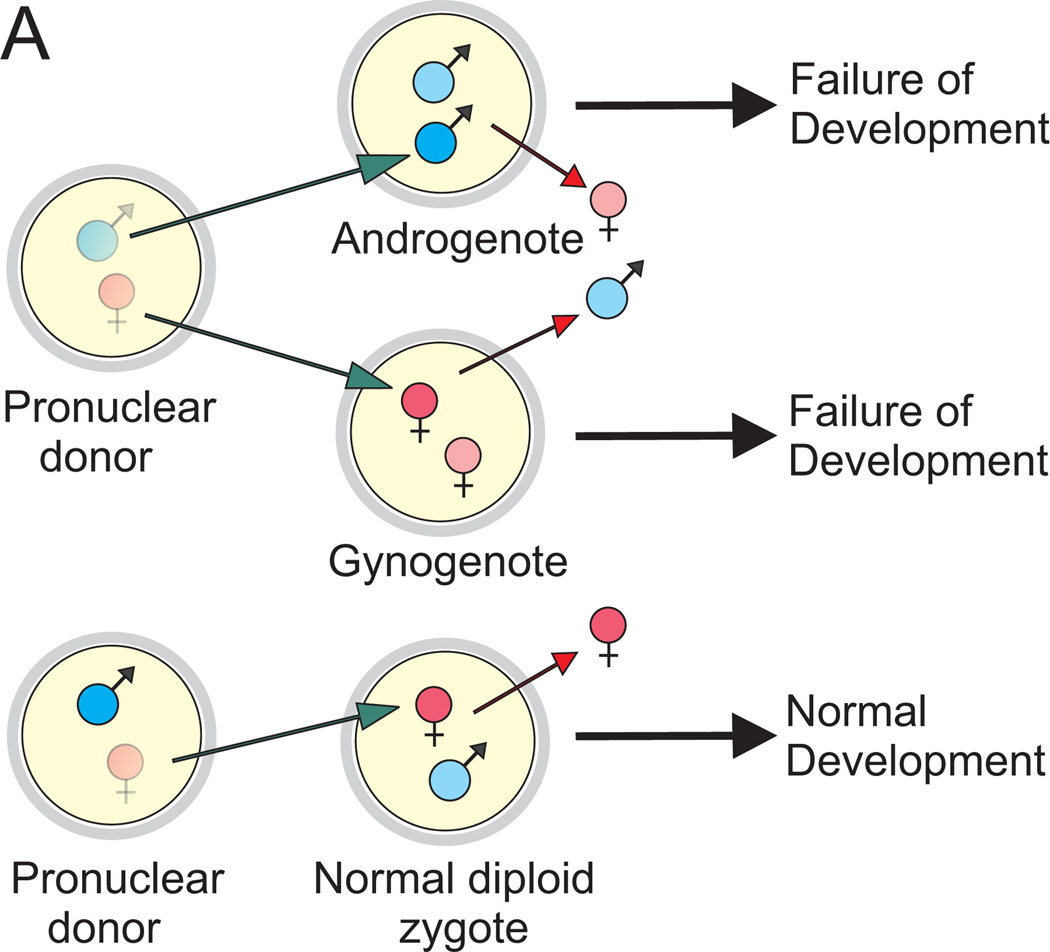Figure 3.
Pronuclear transplantation studies demonstrating experimental evidence for genomic printing. Through sophisticated micromanipulation techniques, maternal or paternal pronuclei from normal mouse zygotes were removed and replaced with reciprocal ones resulting in diploid zygotes containing either two paternal pronuclei (androgenote) or two maternal pronuclei (gynogenote). Such androgenotes and gynogenotes were transferred to pseudopregnant recipients to study their subsequent development. Neither type of the reconstituted mouse zygotes was viable, whereas mouse zygotes reconstituted with paternal and maternal pronuclei normally developed to term. The gynogenotes displayed some fetal growth but poorly developed placentas. In contrast, androgenetic development was rather extraembryonic. These results suggested that both maternal and paternal genomes are necessary for normal development. Further, these experiments indicated that paternally expressed genes contribute to placental development, whereas maternally expressed ones are involved in embryonic development.

